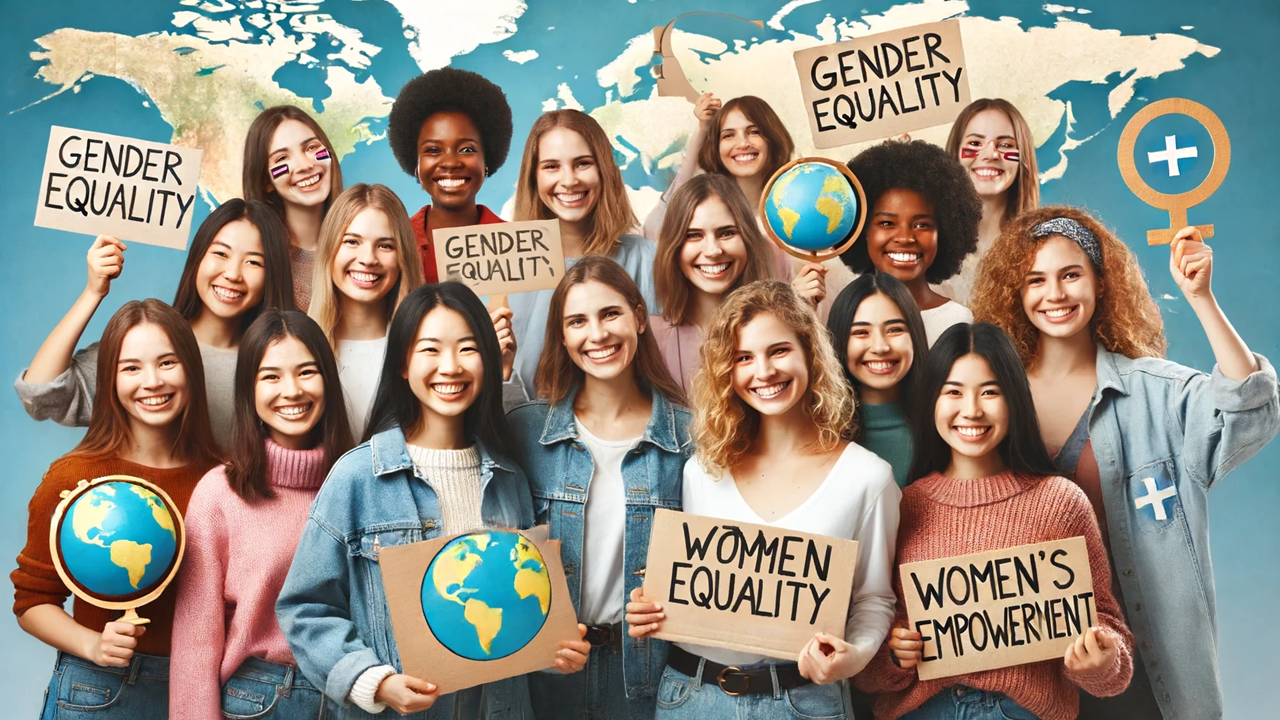Liberia Strengthens Push for Gender Equality in Politics Through UN-Led Training
At the closing ceremony, Mr. Louis Kuukpen, UNDP Deputy Resident Representative for Programmes, lauded participants for their engagement and passion, emphasizing that gender equality benefits society as a whole.

More than 40 representatives from civil society organizations, women's rights groups, gender advocates, and government institutions in Liberia have concluded a transformative three-day capacity-building workshop focused on strengthening advocacy, coordination, and action toward women's full participation in politics. The training, held from October 8–10 in Monrovia, was organized by UN Women and the United Nations Development Programme (UNDP) under the Liberia Electoral Support Project (LESP), with financial backing from the European Union, Ireland, and Sweden, and technical support from the UN Electoral Assistance Division (EAD) of the Department of Political and Peacebuilding Affairs.
A United Effort to Bolster Women's Political Representation
The workshop brought together key stakeholders including the National Elections Commission (NEC), the Women's Legislative Caucus, the Law Reform Commission, and the Ministry of Gender, Children and Social Protection. The initiative sought to deepen understanding of the structural, political, and socio-cultural barriers that continue to hinder women's participation in governance and decision-making.
Through interactive learning, discussions, and experience-sharing, participants explored strategies for overcoming these barriers and enhancing coordination among women's movements, youth groups, disability organizations, and election observers.
International facilitators guided sessions that examined Liberia's 2023 election outcomes, analyzed gender gaps, and introduced participants to global best practices, including temporary special measures such as gender quotas to ensure women's fair representation in political processes.
Key Insights: From Barriers to Solutions
Dr. Maarten Halff, Senior Political Affairs Officer and Electoral Systems Expert with the UN Electoral Assistance Division, delivered virtual sessions on "The Obstacles of Women's Participation in Liberia: An Analysis of the 2023 Results," "Quotas in Context: An ABC of Electoral Systems and Quotas," and "Quotas in the Liberian Context: Options and Implications."
His presentations underscored that while progress has been made in advancing gender equality, systemic barriers—ranging from cultural stereotypes to limited party support and financial constraints—continue to undermine women's ability to compete equitably in elections.
Complementing this, Rindai Chipfunde-Vava, an international consultant from Zimbabwe, and Zage Filiposki, UNDP Liberia's electoral specialist, facilitated sessions using the Building Resources in Democracy, Governance and Elections (BRIDGE) methodology. Participants explored practical modules on:
-
Women's participation in politics and setting targets for representation
-
Sex and gender equality concepts and international standards
-
Advocacy, lobbying, and negotiation skills for women's political empowerment
-
Addressing gender inequalities through strategic planning and stakeholder mapping
Calls for Continued Collaboration and Structural Change
At the closing ceremony, Mr. Louis Kuukpen, UNDP Deputy Resident Representative for Programmes, lauded participants for their engagement and passion, emphasizing that gender equality benefits society as a whole.
"Gender equality is not just about political participation," Mr. Kuukpen said. "We are not asking for too much—we are asking for fairness. We must reset a system that has long been unequal due to cultural, political, and economic reasons. The right thing must be done."
He encouraged participants to maintain the momentum by forming a network or reference group to continue collaboration and advocacy beyond the workshop. "Let's not close the door after today," he added. "Sustainable development can only be achieved when gender equality is guaranteed at every level."
Liberia's Path Toward Inclusive Democracy
Ms. Comfort Lamptey, UN Women Country Representative, praised the energy and determination of participants, noting that Liberia has been a trailblazer in women's leadership but still faces challenges in achieving balanced representation.
"Liberia has offered the world much and can offer much more when it comes to political representation," she said. Highlighting that Liberia ranks among the lowest in Africa for women's political participation—with women currently holding just 11% of legislative seats—she called for decisive action, including the adoption of temporary special measures such as gender quotas.
"By 2029, let's aim not for 11%, but at least 30%," she urged. "That should be our minimum threshold."
Renewed Commitment to Women's Political Empowerment
Participants expressed a shared commitment to continue advocating for inclusive electoral reforms that guarantee women's meaningful participation and representation in decision-making processes. There was also a consensus on the importance of establishing a Civil Society Coordination Platform to enhance cooperation, share resources, and strengthen advocacy efforts nationwide.
The workshop ended with a renewed pledge to make Liberia's democracy more representative and equitable. "Your role as advocates is essential," Ms. Lamptey concluded. "We are stronger together, and when we unite, everything is possible."
About the Liberia Electoral Support Project
The Liberia Electoral Support Project (LESP) works to strengthen national institutions and electoral processes by promoting transparency, accountability, and inclusivity. Managed by UNDP and implemented in partnership with UN Women, the Netherlands Institute for Multiparty Democracy (NIMD), and the National Elections Commission, LESP is funded by the European Union, Ireland, and Sweden.
ALSO READ
-
Liberia's Decision to Accept Abrego Sparks Legal and Ethical Debate
-
Gender Equality as Smart Investment: UNDP’s Roadmap for Inclusive Development
-
Former Belgian PM Alexander De Croo Tapped to Lead UNDP
-
Debunking Tobacco Lies: UNDP–WHO Reveal the Real Costs of a Global Addiction
-
Rubio, Liberian minister discuss boosting US participation in Liberia's critical minerals sector









